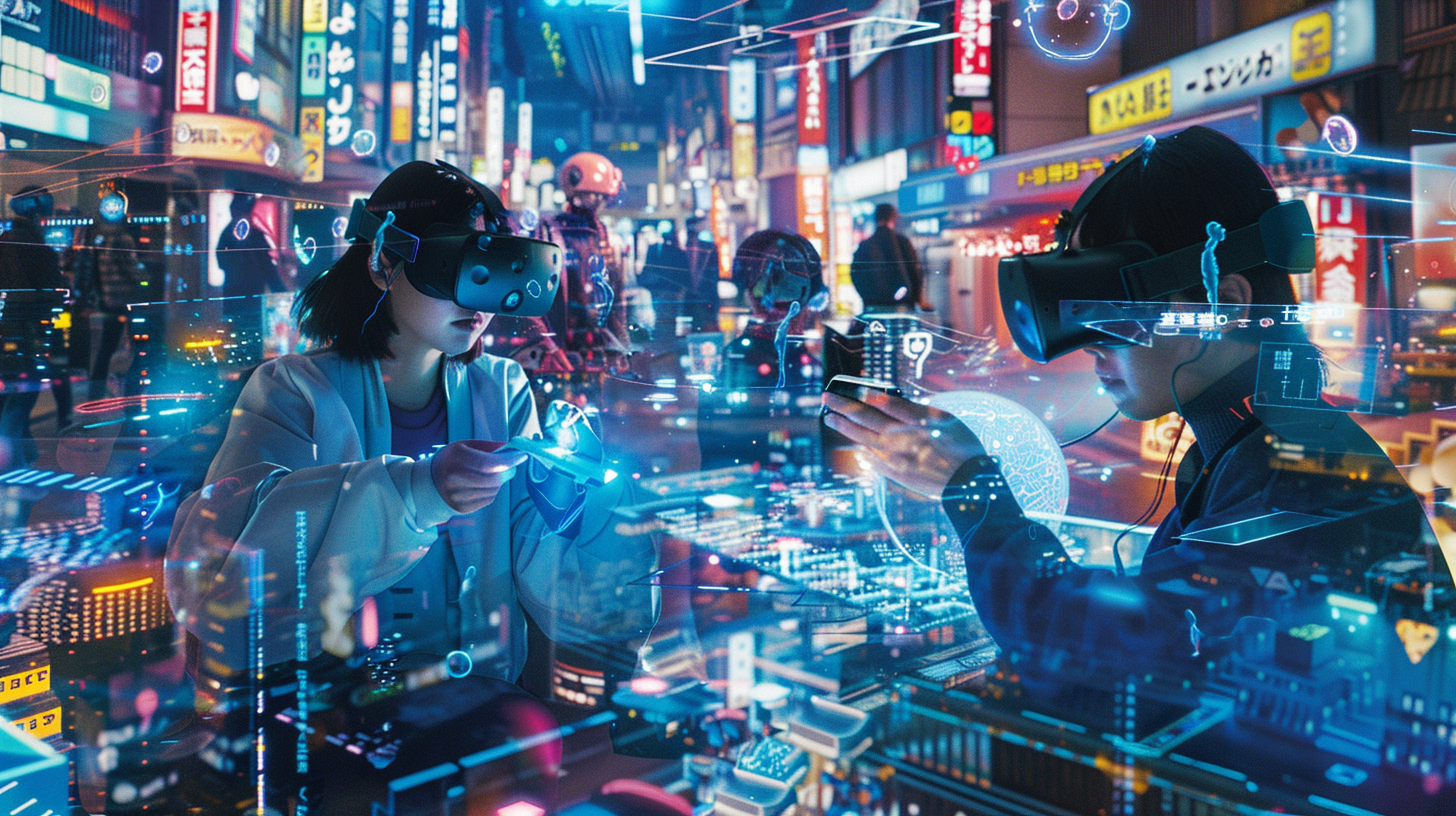
Augmented and Extended Reality (AR/XR) High-Tech from Japan: How innovative sensors are shaping the future of AR and robotics - Image: Xpert.Digital
XR pioneer Japan: How innovative technologies are changing our interaction with the environment
Future made in Japan: Innovative sensors are driving XR and robotics to the forefront
Japan, known for its technological leadership, also plays a central role in the world of extended reality (XR). XR, the umbrella term for augmented reality (AR), virtual reality (VR) and mixed reality (MR), is evolving rapidly and changing the way people interact with their environment. Particularly noteworthy are the advances in the area of innovative sensors, which not only advance XR technology but are also groundbreaking in robotics. Japanese companies and research institutes are leading this revolution and setting standards for the global technology industry.
Japan's role in XR technology
Japan has established itself as a global innovation engine, particularly in areas such as optoelectronics, robotics and artificial intelligence. The fusion of these technologies with XR is a natural evolution. Companies like Sony, Panasonic and Toshiba are investing heavily in research and development to improve XR applications. The potential of XR technologies is particularly evident in consumer electronics, healthcare and industrial manufacturing.
A key factor in Japan's success is the high-precision sensors that are essential for XR applications. These sensors capture motion, depth information, and even biometric data with high accuracy. They not only enable an immersive user experience, but also completely new use cases in robotics and automation.
Innovative sensors: The key to immersive XR experiences
The quality of XR experiences depends heavily on the sensors used. Japanese developers specialize in creating sensors that seamlessly combine motion detection, environmental perception and user interaction. A prime example is advanced lidar (light detection and ranging) systems, which create three-dimensional representations of the environment in real time. This technology is invaluable not only for AR glasses but also for autonomous robots.
Another highlight are haptic sensors that enable physical feedback in XR applications. These sensors create realistic feedback that reinforces the impression of actually touching virtual objects. This development is particularly relevant for robotics as it enables machines to act precisely and sensitively.
Applications of XR in Japan
The applications of XR in Japan are diverse and extend far beyond entertainment. Here are some notable examples:
1. Medicine and healthcare
In surgery, XR systems enable doctors to perform complex procedures with the support of AR overlays. Innovative sensors provide precise information about tissue and organs in real time. This not only improves the accuracy of procedures but also reduces risk for patients.
2. Education and Training
XR is increasingly being used for training purposes. From training technicians to simulating hazardous environments, XR technologies provide realistic training opportunities without taking real-world risks. Sensor technology plays a crucial role by enabling realistic interactions between users and virtual objects.
3. Industry 4.0 and manufacturing
XR applications are used in industrial production to optimize work processes. Workers can receive instructions and real-time data directly in their field of vision using AR glasses. Sensors record movements and environmental conditions to maximize safety and efficiency.
4. Culture and tourism
Japan is using XR technologies to make cultural and historical sites virtually accessible to tourists. Innovative sensor technology creates immersive experiences in which visitors can, for example, experience old temples in their original state.
Combining XR and robotics
The interface between XR and robotics is particularly fascinating. Robots are increasingly being equipped with XR systems to improve their ability to interact. An impressive example is the integration of sensors that can mimic human movements. Such robots could be used in nursing or customer service, where natural and intuitive interaction is crucial.
Another aspect is the remote control of robots using XR technologies. Workers can control robots in dangerous or difficult-to-reach environments while having an immersive experience as if they were there themselves. These applications are particularly important in disaster relief and mining.
XR systems require high technical standards
Despite the impressive progress, there are also challenges. Producing precise sensors is expensive and integrating them into XR systems requires high technical standards. In addition, the question of data security remains a key challenge, as sensors often record sensitive information.
However, the future prospects are promising. Japanese companies are working on more cost-effective sensor solutions and the further development of XR standards. Combining 5G technology with XR promises even better performance and a wider variety of applications.
Extended reality and innovative sensor technology
Japan remains a pioneer in extended reality and innovative sensor technology. The combination of technological know-how, investment in research and a clear vision for the future makes the country a central player in the global technology landscape. Advances in sensing and its application in XR and robotics are opening up new possibilities that will fundamentally change how we interact with the world. It remains exciting to see how Japan will continue to advance these developments and redefine the limits of what is possible.
Suitable for:
